December 2, 2019
Santa Cruz County Sierra Club Group
Executive Committee Candidate Statements
2020: Vote by January 2nd!
Only 3 seats are available and ballots are due by January 2nd, 2020!
Meet your candidates:
Steve McGuirk
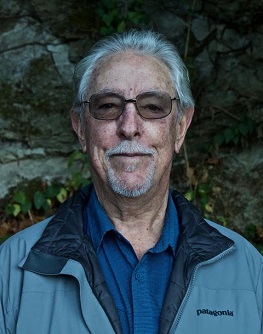
The world population has tripled in my lifetime and the population of Santa Cruz County has more than doubled in the fifty years I have lived here. In many ways the ‘quality’ of life I moved here for has become the ‘quantity', both in population and the exorbitant cost of living. And having watched the explosive growth and wealth of the technology industry I understand fully why people want to live in this beautiful place.
Motivated by the opening of the Monterey Bay Aquarium in 1984, and the creation of the Monterey Bay National Marine Sanctuary in 1992, I joined the Sierra Club. In my forty year career as a landscape architect, habitat restoration specialist and horticulture instructor at Cabrillo College, I have tried to educate, and engage, my fellow citizens in the beauty and protection of the natural world we are surrounded by here.
As our freeway systems become more and more crowded, frustrated drivers are spilling into our residential neighborhoods, threatening residents, pedestrians and cyclists. Mass transit, one of the best alternatives we have for getting cars off the road, is suffering seemingly insurmountable delays. And for all of these reasons, I am in full support of the Rail Trail, both for rail transport and for pedestrian and bicycle usage.
As a trained mediator I hope to help the Sierra Club arrive at the best, mutually-agreeable solutions we can come to as we move into the inevitable urban issues we will all face in the days ahead.
Jane Mio
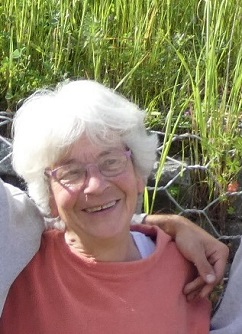
I value co-working with the Executive Committee and linking with other groups on local/State issues to assure that the environment is legitimately included in the policy making and planning processes. On behalf of the Sierra Club I initiated successfully the Bird-safe Design Standards(BSD) for the City Planning Department, effectively urged Congressman Jim Panetta to co-sponsor H.R. 919 ’ Bird-Safe Buildings Act of 2019’, achieved requested habitat changes for the Public Works ‘Lake and Streambed Alteration Agreement’, and I participate in the subcommittee Utility-Wildfire-Prevention-Taskforce of Sierra Club California State Forest Committee. I am serving as Vice-President on the Board on the Valley Women’s Club(VWC) and have initiated collaboration between the Clubs to apply Santa Cruz County’s ‘Significant Tree Ordinance’ outside of the Coastal Zone. For the last 2 years I have been the lead for the VWC Native Habitat Restoration Committee's 'San Lorenzo River Estuary Native Habitat Restoration Project'(Estuary Project), which is co-sponsored by the Sierra Club and supported by the Park & Rec. Department. The goal of the Estuary Project is to improve the wildlife habitats and the levee image with the help of community volunteers and the houseless members of the Downtown Street Team. Currently I serve on the City of Santa Cruz Park & Rec. Commission. At the present time I am formulating a BSD(Bird Safe Design) Resolution for the California Sierra Club. Your appreciated vote will allow me to continue work with determined dedication for the protection of our magnificent environment.
Erica Stanojevic
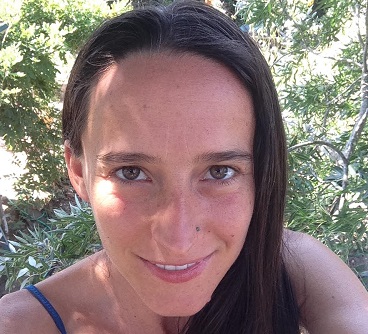
As a mom, I am committed to protecting biodiversity and promoting carbon sequestration. I advocate for active transportation while biking and walking with my son; plant flowers with greywater for pollinators; and serve as secretary for our Executive Committee. As a member of the city’s Water Supply Advisory Committee, I continue to monitor our water plan. As Conservation Committee chair I supported the work of Jane Mio and others to help strengthen city standards regarding vegetation removal along the river during nesting season and creating bird safe building design standards. Please vote for myself and Jane Mio.
I’m a member of the CA public banking alliance; we passed a bill to allow governmental entities in CA to create public banks, so cities can divest from oil.
I’m interested in regenerative aquaculture - seaweed farming, which has the potential to reduce ocean acidification, provide food and jobs, sequester carbon, and provide habitat for a diversity of marine species. Regulatory barriers are all that is stopping this here in CA.
Regenerative agriculture is also a passion - when cattle are grazed to mimic natural foraging patterns of bison, carbon is sequestered and native grasses reappear.
I play with supporting the Ecosystem Restoration Camp movement, which includes exciting work to restore Paradise after the fires.
I believe the rail trail needs to be implemented wisely. Wetlands exist along the entire line; we need to carefully examine each segment and consider the best way to implement such a huge plan rather than rushing in.
I’m a member of the CA public banking alliance; we passed a bill to allow governmental entities in CA to create public banks, so cities can divest from oil.
I’m interested in regenerative aquaculture - seaweed farming, which has the potential to reduce ocean acidification, provide food and jobs, sequester carbon, and provide habitat for a diversity of marine species. Regulatory barriers are all that is stopping this here in CA.
Regenerative agriculture is also a passion - when cattle are grazed to mimic natural foraging patterns of bison, carbon is sequestered and native grasses reappear.
I play with supporting the Ecosystem Restoration Camp movement, which includes exciting work to restore Paradise after the fires.
I believe the rail trail needs to be implemented wisely. Wetlands exist along the entire line; we need to carefully examine each segment and consider the best way to implement such a huge plan rather than rushing in.
Micah Posner
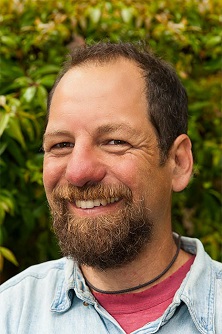
The Sierra Club is a special place where people with shared values work together to improve the world. I want to support the Club by working on the Santa Cruz Executive Committee.
I have been an environmental activist for 33 years. I worked to protect the Great Meadow at UCSC, and opposed highway widening and the desalination plant. I worked FOR the public acquisition of the rail right of way and the construction of a rail trail and other bicycle facilities. Currently, I do administrative support for my daughters, who are leaders of the youth climate strike.
Our family of four owns a home in the Lower Ocean Neighborhood of Santa Cruz. We have one ADU, one electric car, 6 bicycles, 8 solar panels and 9 fruit trees.
I am a competent mountaineer, rock climber, bicyclist and ocean paddler.
I admire the national and local Sierra Club for its courage and independence. I currently serve on the Transportation and Political Action Committees of the Club.
If elected, I would support projects that help human beings live more simply and oppose those that encourage consumption and increase energy use. At times we need to accept minor degradations to urban habitats in order to reduce our local contribution to global warming. Specifically, I am fully in support of a coastal trail on the railroad right of way.
In part due to my time on the Santa Cruz City Council (2012-2016), I maintain strong relationships with a wide variety of community leaders and am endorsed by a broad group of environmentalists including Rick Longinotti, Former Mayor Cynthia Mathews and County Supervisor John Leopold.
Please contact me anytime: micahposner@cruzio.com or 831 227 4772
Bob Morgan
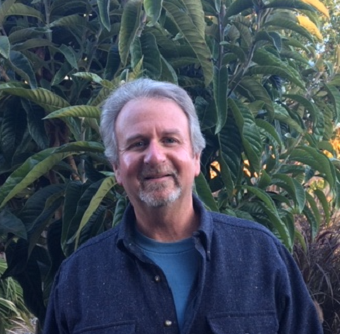
“Bob combines a deep commitment to environmental issues with a keen intelligence and warm personality”—Rick Longinotti, Desal Alternatives.
I find immense joy in the natural world—its solitude and beauty offer solace and restores me, and so, the lives of those around me. My activism is rooted in that appreciation and my commitment to preserve it.
My profession is teaching; I recently retired after a thirty-year career. Time spent listening and learning from others, foundations of effective teaching, will serve me well in the Executive Committee.
Advocacy for the environment was a salient feature in my teaching. My high school students wrote on Barry Lopez and John McPhee. Joan Didion’s essays invited them to engage with our bounteous state and its contradictions. Later, after my family trained with Al Gore and his Climate Reality Project, I returned to classrooms to present on climate change, our urgent, existential crisis; its acceleration profoundly shapes our lives on the planet.
Advocacy for the environment was a salient feature in my teaching. My high school students wrote on Barry Lopez and John McPhee. Joan Didion’s essays invited them to engage with our bounteous state and its contradictions. Later, after my family trained with Al Gore and his Climate Reality Project, I returned to classrooms to present on climate change, our urgent, existential crisis; its acceleration profoundly shapes our lives on the planet.
Climate activism led me to Cabrillo, where I deepened my knowledge of climate science and then engaged with local politics in transportation issues, a primary source of GHG emissions. I participate with the Campaign for Sustainable Transportation, advocating for Metro funding and bike infrastructure, opposing the widening of Highway 1, endorsing transit on our rail corridor, arguing against building a large parking structure Downtown, fighting a car dealership in Soquel. We need alternatives to our car culture, not expansions; we need green space and sustainable development.
These positions motivate my candidacy.
-----------------------------------------------------------------------------------------
Additional Questions:
Additional Questions:
1) How long have you been a member of the Sierra Club?
Steve: I initially joined the Sierra Club in 2007, but due to the prolonged epilepsy of my oldest son I let my membership elapse. Thanks to his successful brain surgery, I rejoined the Club this year.
Jane: I have been a Sierra Club member since 1996.
Erica: For at least a decade.
Micah: Twenty years or so. I’ve served on the Political Action Committee for a couple of years and was on the Transportation Committee before that.
Bob: I’ve been a member, with lapses, throughout my adult life. The past two years I served on the Transportation Committee and this summer presented to the City Council library sub-committee with Chair, Keresha Durham and Gillian Greensite, opposing the parking garage/library mixed-use facility.
2) What do you view as the most pressing environmental issue facing Santa Cruz County?
Steve: I see the most pressing issue as increases in greenhouse gases, due to the lack of clean energy public transportation, a symptom of universal population increases and the popularity of people wanting to live here and commute. I moved here for ‘quality’ of life, and now I see primarily ‘quantity’.
Jane: We are facing rapid increase of development projects, coupled with major rezoning, that appear to exclude the environmental review process, required to protect and/or enhance the unique fauna/flora biodiversity of County's diminishing natural areas. Thorough scientific environmental evaluations are essential to avoid long-term, irreversible impacts.
Erica: Loss of habitat for species of concern; adapting fully to changes in rainfall; contribution to climate change due to horrendous traffic that is based on car-centric city planning.
Micah: Changes to the world’s climate will flood parts of our county and burn other parts. We need to be part of the solution by reducing our emissions countywide, focused on our biggest single source- a transportation system dominated by automobile use.
Bob: Environmental degradation due to development. A coalescence of forces--tourism, Silicon Valley economic dynamism, and UCSC expansion—drive our growth, taxing our infrastructure, exacerbating congestion, and depleting our natural resources, all weakening our region’s ecological resilience. Wise land-use planning enhances our environment, complementing; unchecked growth destroys it.
3) What is one of your favorite places to explore in our County?
Steve: Walking the entire Monterey Bay in 2002 was one of the most epic experiences I have had here. A perennial favorite is hiking in Land of Medicine Buddha in Soquel at the confluence of two branches of Bates Creek, a place of beautiful redwoods and spiritual wisdom.
Jane: Our County is the perfect place to explore water bodies, which are my favorites. I explore the San Lorenzo River frequently and share my observations in the https://sanlorenzoriverblog.com
Erica: So many - let’s go with Pogonip as there are several different habitats to explore there.
Micah: The Upper Campus/ Natural Reserve of UCSC.
Bob: We love the redwoods and visit Cowell State Park in every season. Winter, our favorite, was often spent with our two sons running through sloshy puddles counting banana slugs, trying to best one another. Come spring, I listen to the San Lorenzo and observe its riparian ecology emerge, new green and fresh.
4) What aspects of the Club’s work are you most interested in being involved with?
Steve: I am most interested in outreach to other kindred environmental protection and education groups (e.g. Life Lab and California Native Plant Society). I am also interested in finding ways to support environmentally sustainable use of resources such as organic agriculture, mining, forestry and ocean harvesting.
Jane: My interests are 1. all Conservation Committee topics; 2. initiating local/State environmental policies; 3. building strong contacts and coalitions with environmentally minded individuals and organizations to establish a solid, more inclusive supporter base; 4. community outreach to raise environmental awareness.
Erica: Continuing conservation committee work - protecting biodiversity through paying attention to land use; continuing being involved in water policy.
Micah: Transportation, Energy Generation, Growing the Club’s membership in Santa Cruz, Political Action.
Bob: The challenge of transportation emissions has motivated me to work these past four years with the Campaign for Sustainable Transportation, advocating for increased Metro funding, active transportation and the rail corridor and engaging politicians with the County Sustainable Plan, a land-use planning vision complementing resilient, walkable communities.
5) What are your thoughts on climate change?
Steve: Climate change is one of the primary symptoms of unbridled population growth and the misuse and mismanagement of the earth’s natural resources. The 70’s slogan, “Think globally, act locally” best reflects my position as to the negative aspects of climate change, beginning with our inefficient and polluting transportation systems.
Jane: Collaboration of local/State governments, businesses and the public is necessary for responsible, effective, multi-pronged steps to counteract any impacts of climate change. I lead river restoration work, do educational outreach to preserve and protect faunal and floral biodiversity in order to alleviate climate change impacts.
Erica: We need to focus on deep adaptation and regenerative practices to heal our land.
Micah: Living more simply so as not to change the world’s climate needs to be part of our ethical system; an 11th commandment. The good news is that living more simply will also help us feel happier and more fulfilled.
Bob: All our actions need to be seen through the lens of climate change, the most pressing, urgent existential problem humanity faces, both intensifying our environment’s degradation and threatening the earth’s biodiversity. Earth’s sixth extinction is underway; it’s imperative we act to lessen the harm our fossil fuel economy is causing.
6) Where do you stand on the future of the rail corridor between Davenport and Watsonville?
Steve: I support the use of the rail trail for clean-energy train, bicycle and pedestrian use. I foresee its value to workforce commuters from Watsonville to Santa Cruz, and as access to Davenport and the closed Cemex cement plant facilities, hopefully a future hotel and environmental conference center.
Jane: North America's biodiversity is rapidly declining, therefore we need to examine any project's impacts on the ecosystems. In-depth project evaluation will result in well thought out mitigations, avoiding further environmental degradation. This approach reflects Sierra Club’s environment guidelines & policies, which deserve to be applied to the 32 mile corridor.
Erica: I support wise rail and trail; ideally I’d see a monorail or something above highway 1 however I understand that’s not politically feasible. The part of the rail between Santa Cruz and Davenport is only for tourism and I do not support that segment.
Micah: I am one of the founders of Friends of the Rail Trail. I support building the trail while we design an electric rail system. A train would support walking and cycling by encouraging development to happen around the stations. It would allow access to people that wanted to, or had to, live without cars.
Bob: I advocate for transit on the corridor, utilizing that access way through our county with both transit and trail. However, habitat loss is an essential concern for many, deserving rich dialogue, active listening and shared learning. The RTC Alternative Analysis study, out in 2020, will help guide our decision-making.
7) Where do you stand on UCSC expansion?
Steve: I am against, across the board, any further unbridled growth in Santa Cruz County, including UCSC, without better analyses of the effects on the precious environment, urban infrastructure, vehicular traffic, and water and agricultural resources.
Jane: Further UCSC expansion will overextend the City’s and County's spatial and infrastructure capacity. The UC Regents plans must include citizens as valid stakeholders, because everyone is being asked to absorb an unsustainable UCSC student growth rate that portends destruction of valuable natural resources' habitats upon which its wildlife dependents.
Erica: There are plans for expansion in certain areas that were previously vetted in the community and not being utilized now; the current plan for buildings in the meadow is not the best solution.
Micah: Any growth at UCSC needs to occur without increasing water use or generating more traffic. It needs to focus on housing and adequately serving its existing students. I am opposed to a new automobile entrance to upper campus via Empire Grade.
Bob: We need to be vigilant and communicative with UCSC as it expands beyond its original population expectations. The university adds much diversity to Santa Cruz, but also stresses our housing capacity, taxes our infrastructure and water resources, and adds to single vehicle occupancy congestion. We need to collaborate and plan with the university, supporting its mission, but clear about our mutual needs. Proposed housing on the east field requires critical dialogue from the Sierra Club.
8) Where do you stand on granting more access to trails for mountain biking?
Steve: Because of its popularity and environmental context, I support granting more mountain biking trails access with the following conditions: that they be separated from hiking trails; that they be environmentally sensitive; that they be constructed with drainage, and potential erosion, in mind. I see too many trails becoming eroded drainageways.
Jane: The environmental guidelines of the Sierra Club are based on the precautionary principle: the proponents of activities bear the burden of proof of harmlessness of any activity. Currently no proof exists that mountain biking fulfills the Sierra Club’s guidelines thus preventing an evaluation for more mountain biking trail access.
Erica: I am supportive of conscientious use; bikers need to be aware of other trail users and be aware of potential erosion and not ride when the land is wet. I support having many trails be only for hikers to reduce potential conflict.
Micah: Mountain Bikes should have dedicated trails and should be allowed on most dirt roads. There should also be trails that are off limits to them. Off trail riding should not be allowed and should be strongly enforced.
Bob: Recreation supports health, yet degrading our bike trails with excess mountain bike use, causes erosion and harms the rich ecosystem we cherish. Regulating and monitoring mountain bikes on designated trails is critical to the rich biodiversity in the mountains. Safety for walkers and habitat protection are paramount concerns.